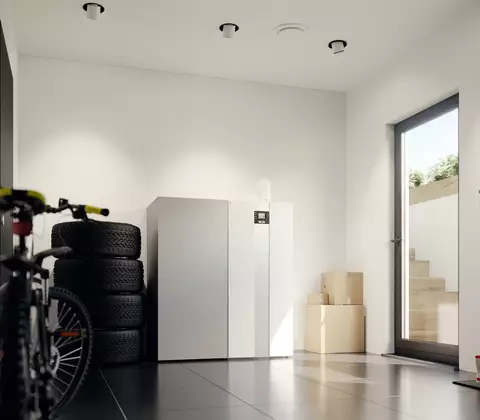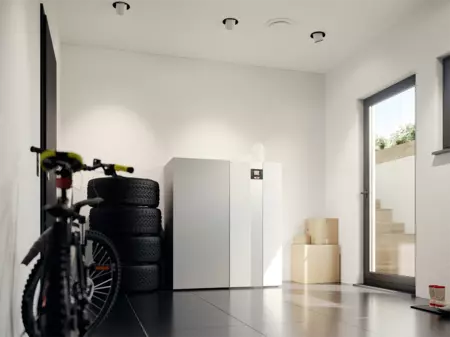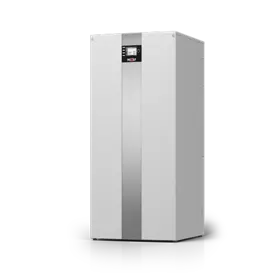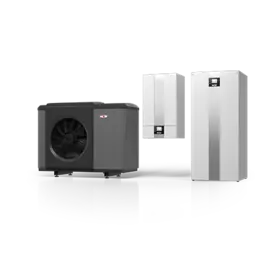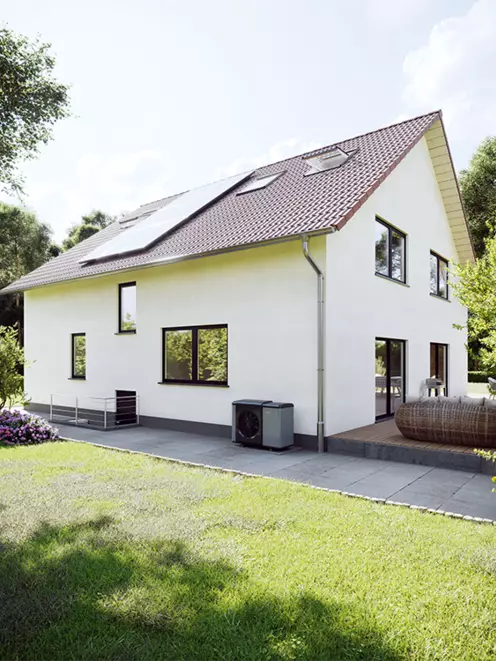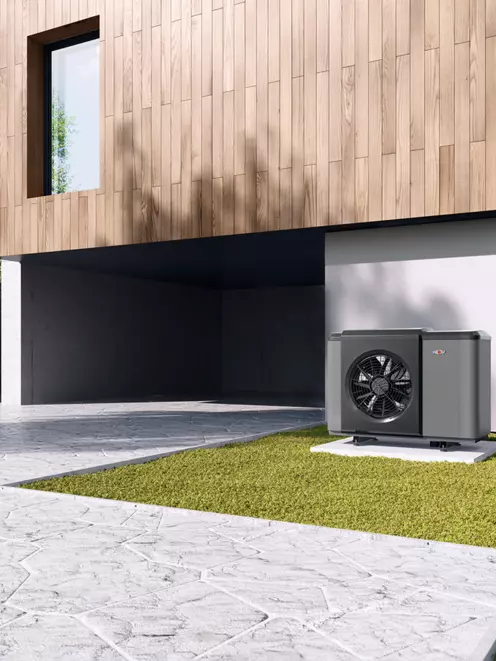Even though subsidies are no longer available for oil hybrid heating, this combination is still a worthwhile choice in many cases. The classic version of oil hybrid heating consists of an oil condensing boiler and a solar thermal system. The solar collectors in such a hybrid system can provide 20 to 50% of the heat needed by the house over the year. Solar energy is particularly environmentally friendly and can leave the heating boiler with nothing to do from March to October. Another option for a hybrid heating system is to combine a heat pump with an oil condensing boiler. This especially makes sense for an air-to-water heat pump, since this type of heat pump requires a great deal of electricity on very cold winter days. In moderately to poorly insulated buildings, the electricity bill will rise accordingly. This is when the oil condensing boiler kicks in. On warmer days, however, the heat pump shows its strengths and supplies the house with climate-friendly environmental heat. If you would like to combine an oil heating system with a heat pump, you should take a closer look at the WOLF CHA Monoblock. With its understated design and quiet operation, this air-to-water heat pump will blend in perfectly with the look of your home.
